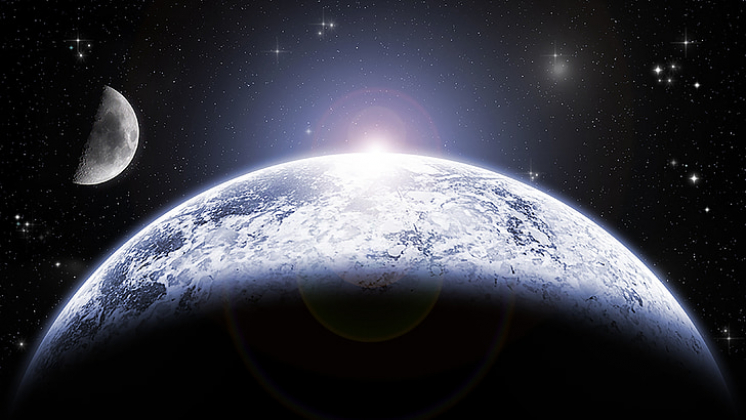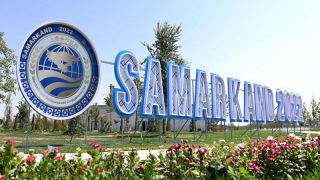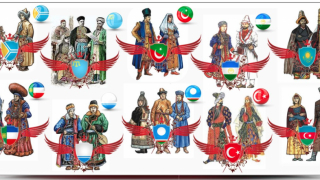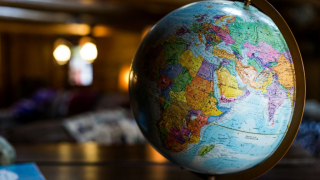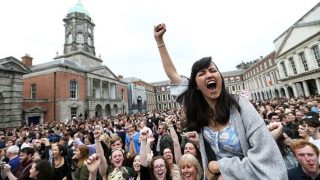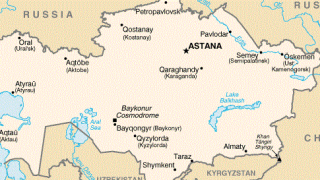Will Russia Save the West (Again)? Or Just Will Save the World…
The era of portraying Russia as the „Evil Empire” is coming to an end, maybe not forever, but certainly in connection with two long-term factors. First of all – a change in the hierarchy of American goals, and secondly – the reorientation (eventually even reorganization) of the European Union.
Indeed, the question is whether Russia today will take revenge on China for Chairman Mao and President Nixon Ping-pong diplomacy – remains one of the most important geopolitical issues in the World and in the history. If Russians decide to accept a fairly clear American offer, taking the position of the US wingman in a struggle of the reactionary industrial capitalism à la Donald Trump against the emerging new centre of financial capitalism in Beijing and Shanghai – they probably again (as not once in history) settle the global gameplay for a long time. In this option, however, there would be no question of just reset, but much more – the current division into the West and East would cease to be valid at all, and Moscow would have to be recognized as one of the equal capitals of the victorious (perhaps …) world economic and political system.
Such a solution is supported by the still strong Westernization tendencies in Russian political leadership (the New За́падничество), as well as by the nature of the economy of the Russian Federation itself. It is known, that also we, as the Central Europeans are now convinced to this option, and because we are on a short leash shorter of Washington, so therefore we are especially obedient to the instructions coming from this direction. Well, but contrary to what the Americans tell the Russians – the number of points of contention between Moscow and Beijing is negligible, not to say none. So why Russia even closing one direction of the conflict, with the West (as it turned out, in fact, not very aggravating) – is supposed to open another one in the Far East, much more developmental and future-oriented area?
But even for that rhetoric question – simple answer has been found. There are some significantly strengthened centres convincing Russians that they are … „dependent on China„. So that they should break this dependence, join the competition e.g. in the Central Asian area, in a word – behave towards the PRC more or less like Poland and Lithuania today do towards the Russian Federation. Well, of course, Russia is not a Western catcher, and it probably will never be, so the comparison may seem to be wrong – but also Polish or Romanian examples should be sufficiently repulsive for Russian decision-makers to go over such “good advice” this time.
The Time and Mutuality Factor
On the other hand, Russia, moreover, is not eager to take opposite actions, e.g. to engage in any Anti-American Internationals. This lesson of a traditional diplomacy was understood well in the Kremlin and Russian Ministry of Foreign Affairs – about the only and best alliances with their own army and fleet. Thanks to them Russians are today one of the decisive players in the Middle East, which in turn helps, for example, in making a geopolitical turn and independence of one of NATO’s closest dependent countries, Turkey. This is only a potential, but existing possibility of a one-hit solution of the Ukrainian crisis (if anyone starts to play Kiev card again) – thanks to which the escalation in this region of the World was stopped, (we should all be grateful to the Kremlin for). Above all, it is the continuing own power that gives Russia what it needs most: TIME.
Russia needs time to accelerate internal modernization, to increase own social and infrastructural sphere to the level already reached by Russian political possibilities. Hence, pacification at the borders is in Moscow’s best interest. But not in exchange for entering into other conflicts and in general, not at all costs. As is increasingly seen even in official publishers – modern diplomacy no longer denies the „Do ut des” principle, agrees that mutuality remains crucial, but no one is able to point out what else (besides lowering tension) the West can offer Russia.
The only thing left to the agitators is that in Moscow still acts the same charm of patting and “giving the Eastern Barbarians the certificate of the Western Values„, which worked 300, 200 and 30 years ago. But let’s hope also Russians remember, that till now, when any “good friends” distracted Russia from Eastern affairs and dragged them back to Europe – it resulted only enormous troubles,losses, destruction and the need to start everything almost from the beginning…
Well, but the Russians themselves will decide – whether this business will pay off and on what terms. But what about the conclusions for us, the inhabitants of the rest of Europe?
Soros Changes the Tone?
The general conclusions are as clear as correct – one way or another, but the global detente in relations with Russia is finally coming. If not even in D. Trump’s way – so because the Old Union is also striving to do it, with France and Germany at the forefront. This is primarily due to the crisis of the entire EU and its basic components, due the need to solve increasing social and ethnic problems, due the pressure from societies demanding what, for example, President Putin does, that means: to focus on their own affairs, instead of polarisation-alienation scheme and permanent pursuit of propaganda slogans.
However, they hold fast, although their proponents also had to change their expectations and reorient their strategies. As well like President Trump wants to get along with Russia to pull her into his conflict with China – as George Soros would invariably want Russia to become a part of the New World Order, project of globalization on the principles of universal financial capitalism and slogans of liberal democracy and „Open Society” and so on or at least not to support enemies of this construct, like Moscow used to be seen in such circles. „Peace for Democratization” – this was the Sorors’ offer until quite recently, or more precisely: „Peace in Exchange for Surrender and Alignment„. Today, however, the weakening of the Soros’ Western centre would make such transaction absurd, so they have reformulated their proposal into “Peace, Only Peace and Let’s These Ours Don’t Look at Your Side!”.
Brussels version of European project (still dependent on America, but slightly different ideologically from USA) to survive must also strengthen and change its priorities, but not on foreign issues (like D. Trump has to), but internal ones. Hence Paris and Berlin, and behind them other, less dependent on America, smaller centres no longer see the sense of maintaining a confrontation with Russia. Especially in a situation where in France, Germany and especially in Italy grassroots tendencies are increasingly stronger to cooperate with the Russians directly on the basis of values,content and interests extremely opposed to those on which the Brussels supra-state was built.
And this is the answer to the title question. America would like Russia’s participation (and to a lesser extent also other strengthening centres, including Europe) in such a transition that would retain as much of the current unipolar shape of the World as possible, or at least Washington needs help in ensuring US position in multipolar realities. This is certainly more attractive offer than present conditions and relationships, but is it the only one? Well, we can’t forget about the existing threats.
European elites represent a descending, defensive, but still dangerous project – replacing unipolarity with globalization based on liberal, Popper’s monoideism. Is the third project possible, a project based on the sovereignty of societies, on their true identity? For many, this still seems to be only Utopia – and maybe this is just another Russian mission (as in 1812 and 1945). However, it can be realized only with the awareness and participation of us all.

